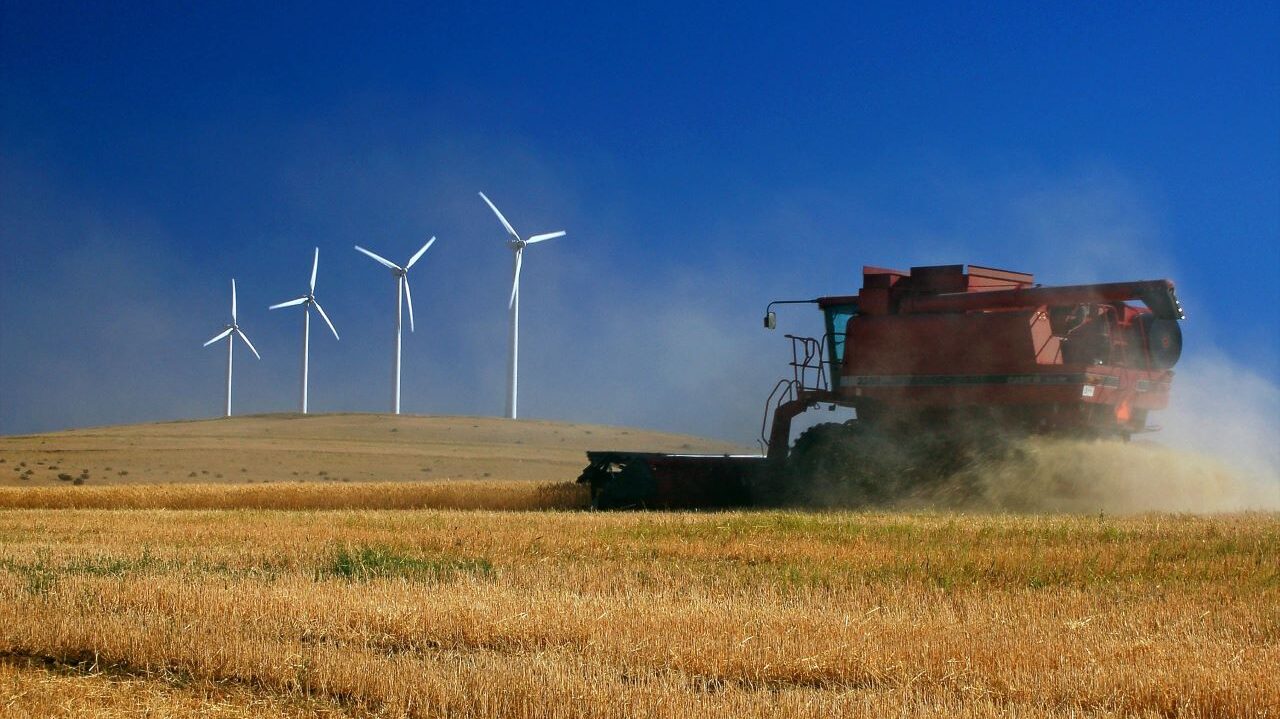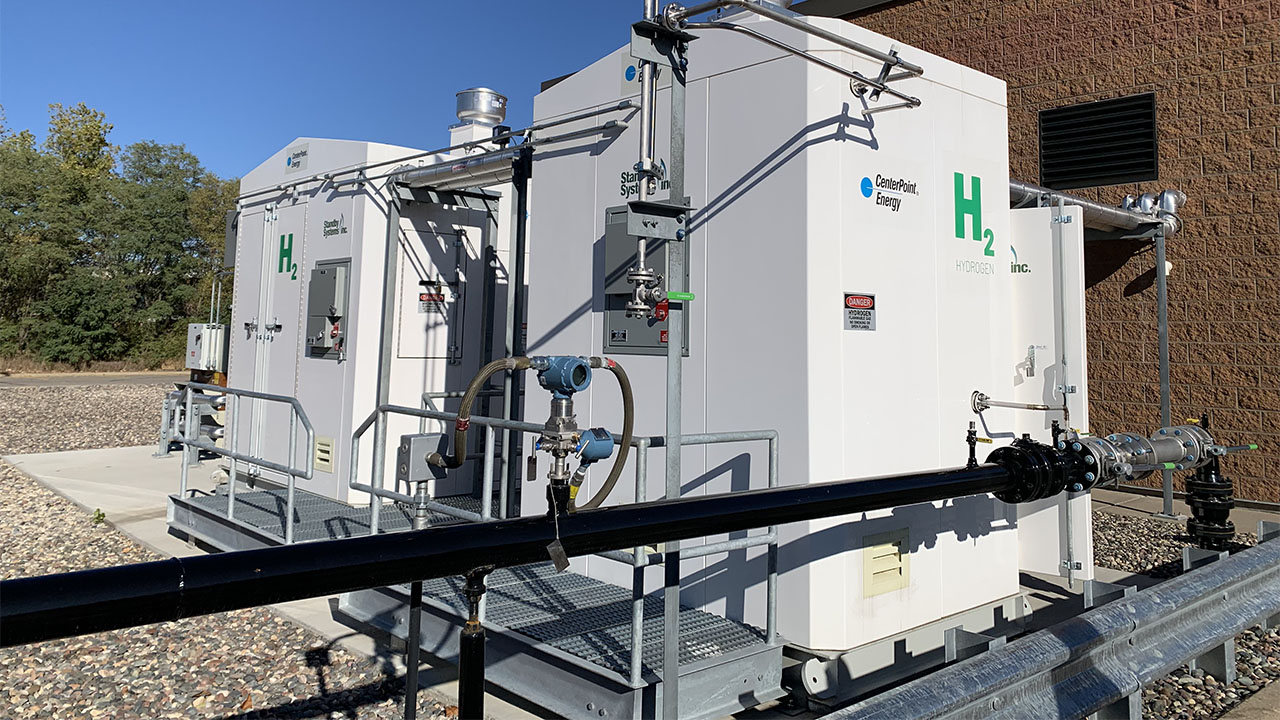
Scientists agree that to address the global climate crisis, we must be carbon neutral across the economy by mid-century or before. And while our power sector continues to get cleaner and we transition carbon-intensive parts of our economy onto clean electricity, there are other pieces of the puzzle that we must also fit into place to meet the problem of global warming at the speed and scale of the issue.
To rise to the challenge, Fresh Energy is launching a new Industry department that will focus on regulation, policy, and market transformation to accelerate decarbonization of Minnesota’s industrial and agricultural sectors.
From the Iron Range to farm country and everywhere in between, Minnesota has a long history of being on the leading edge of industry and agriculture, which is why these sectors today are major economic drivers and critical sources of jobs for our state. These sectors have evolved over the decades and continue to do so. This presents Minnesota with an opportunity to keep leading from the Midwest with urgently needed rapid decarbonization while continuing the legacy of family-supporting jobs, a strong tax base, economic vitality, and beyond for communities. But we must start now.
The data show that the industrial and agricultural sectors are significant sources of carbon pollution in Minnesota and in the U.S. and will also be the most challenging sectors to decarbonize. The Environmental Protection Agency estimated that in 2020, these sectors accounted for a combined 35% of greenhouse gas emissions in the U.S.—with 24% of emissions from industry and 11% from agriculture.
For three decades, Fresh Energy has worked to create a carbon-free electricity system with renewable power replacing coal and other polluting fossil fuels. As our clean electricity work advanced, Fresh Energy built upon its strong foundation and grew our focus to include addressing the energy transition and decarbonization in other sectors of our economy—including buildings and transportation—as well as weaving access and equity into all that we do. This evolution guided the Strategic Framework that directs Fresh Energy’s work today and the growth of this new department.
The Industry department

Fresh Energy’s Industry department is led by Craig McDonnell, managing director, who brings a wealth of experience and knowledge to this work from his time as Assistant Commissioner for Air and Climate Policy at the Minnesota Pollution Control Agency and Director of Government Relations at the Minnesota Department of Agriculture.
Under Craig’s leadership, the Industry department will continue advancing Fresh Energy’s existing work on innovative, high-leverage opportunities in industrial decarbonization, focusing on early opportunities in “green fertilizer” and clean steel. The department will live within Fresh Energy’s energy transition imperative alongside Clean Transportation and Buildings.

“Fresh Energy is a trusted leader on equitable, actionable clean energy policy in Minnesota and the Midwest and we are growing our leadership to also encompass industry and agriculture,” said Margaret Cherne-Hendrick, senior lead, Innovation and Impact. “The creation of this department demonstrates Fresh Energy’s deep commitment to decarbonization in Minnesota by focusing on the toughest sectors of the economy. By growing our team of experts and the focus of our work, Fresh Energy is rising to meet the scale of the climate change challenge.”
Industry department priorities:
At the outset, the Industry department will advance the work already underway at Fresh Energy on clean fertilizer, green hydrogen, and with partner organizations on clean steel. U.S. fertilizer production is enormously carbon intensive and 99% of fertilizers are made using fossil fuel. The local production of green fertilizer is an important first step toward industrial decarbonization—and Minnesota is poised to create a model of local production and rural economic development, all driven by renewable wind and solar power. Clean steel discussions are ramping up and Fresh Energy is at the table with our partners helping to shape and advance this work in Minnesota.
The Industry department will also prioritize helping Minnesota meet its greenhouse gas emissions reduction goals by advancing changes to industry and agriculture regulatory and policy structures. This will include pushing for state implementation of elements within the newly released Climate Action Framework. The department will focus on spurring innovative and equitable market transformation in light of new federal investments in the Infrastructure, Investment, and Jobs Act (IIJA) and Inflation Reduction Act (IRA) to equitably transition energy systems in Minnesota’s industry and agriculture sectors. This includes $5.5 billion in the IRA in support of low-embodied carbon materials development, like clean cement and clean steel, and a $3/kg production tax credit for zero-carbon hydrogen, making green hydrogen cheaper than gray hydrogen.

Fresh Energy is excited to build on the momentum growing across Minnesota with the post-election shift in Minnesota’s political landscape, state leadership advancing Executive Order 22-22 directing state agencies to pursue federal funding for clean hydrogen market development in Minnesota, and our state’s commitment to collaborate across two multi-state coalitions: the Heartland Hydrogen Hub and the Midwest Hydrogen Coalition (M-H2 Coalition).
And while the policy work within this department is important, even more crucial is the department’s role in building a community of collaborators from around the state to affect change. The collaboration on this work must bridge geographies, sectors, backgrounds, and political ideologies, to bring diverse and new voices to the table.
What’s next
Fresh Energy is committed to using high-impact, equitable solutions to achieve carbon neutrality across the economy and the Industry department is an important area of growth. As we look to the future and build out the Industry team, we already know that this department’s work will be critical in helping Minnesota and the Midwest take on one of the hardest sectors of the economy to decarbonize.
The time is now and Fresh Energy is excited to grow our work and our team to meet the climate challenge!
